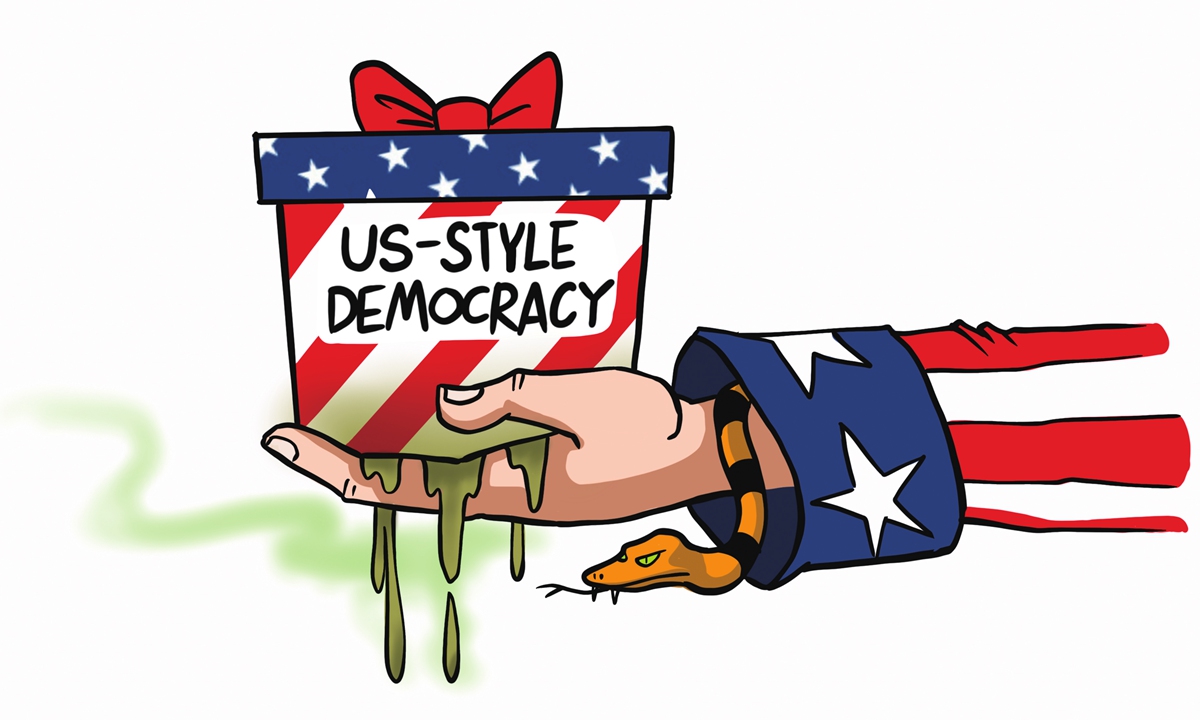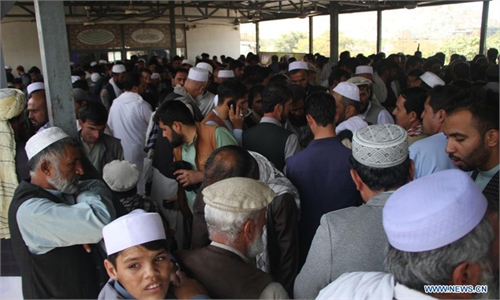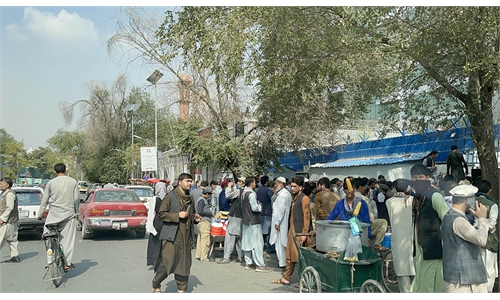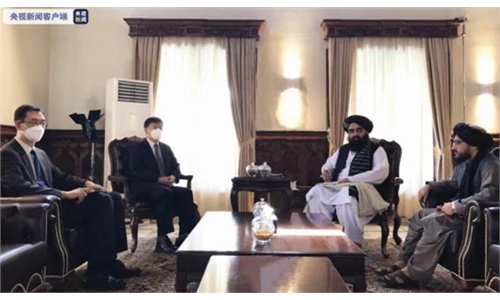COMMENTS / EXPERT ASSESSMENT
Humanitarian crisis in Afghanistan exposes longstanding problems of Western development aid

Illustration: Liu Rui/GT
Afghanistan is now on the verge of a humanitarian and economic crisis. Despite the fact that the international community has pledged more than $1.2 billion in humanitarian and development aid to the country, Afghanistan appears still approaching a critical point. Executive Director of the United Nations' World Food Programme (WFP) said that 14 million people in Afghanistan - one-third of the population - are facing food insecurity.
In the meantime, a massive exodus of refugees may evolve into a regional crisis. Many factors have contributed to the development of this tragedy, but it is truth that Afghanistan has been the number one recipient of aid from major Western countries for more than two decades. The failure of international development aid should also face heightened scrutiny.
The first problem is that ideology was the primary consideration for western governments, instead of real development. For a long time, Western countries have been exporting ideology and governance modes through foreign aid, forcing recipient countries to reform under a threat of halting aid funds or directly imposing sanctions. The West failed to hide its parochialism even when it comes to humanitarian crises.
The second problem is an excessive paranoia about procedural justice. The UN and many international aid institutions had been providing aid to Afghanistan long before the government collapsed and the Taliban marched into Kabul on August 15. The truth is, over the past 20 years, Western aid has not helped the war-torn country in effective way. With thousands of development advisers from different fields interwoven across the country, each with its own agenda, the result is in a huge amount of local duplication and wasted development resources. According to an OECD research, an average recipient country receives nearly 300 delegations from donor countries every year, costing up to $5 billion.
Now the international community is calling for additional assistance to Afghanistan, which not only needs assistance, but also "real assistance" that can benefit its people, just like China's assistance in building low-cost affordable housing in Kabul.
The third problem is dissociated development goals. International development assistance theories prove that when a humanitarian crisis emerges, the most vulnerable groups are often the hardest hit, so that the most effective tool to deal with the crisis is to combine humanitarian intervention with development assistance. The current crisis in Afghanistan has again confirmed this theory. Poverty rates are soaring, public services are collapsing and many may run out of food by the end of the month as rising prices dry up their salary savings, according to UN's estimates.
"Today, around 10 million children across Afghanistan need humanitarian assistance to survive. An estimated 1 million children are projected to suffer from severe acute malnutrition over the course of this year and could die without treatment," read a statement by UNICEF Executive Director Henrietta Fore on children in Afghanistan.
However, Western aid practices often run in the opposite direction. For instance, the new head of the US Agency for International Assistance (USAID) in the Biden administration, Samantha Power, has repeatedly used her official and academic role to advise the Department of Defense to intervene directly in humanitarian crises overseas.
It is easy to tell that the dissociation between the goals of emergency humanitarian aid and development aid is an important inducement lurking behind the continuous fermentation of crisis.
The fourth problem is that aid has become a breeding ground for corruption. About $6 million cash and at least 15 gold bars were reportedly found at the home of Amrullah Saleh, Afghanistan's former vice-president. In fact, western countries know that the longstanding approach to financial aid breeds corruption, which they choose to cover up in order to maintain their own image of aid and the interests of related parties.
Initial humanitarian pledges for Afghanistan have so far exceeded $1 billion. Generous as it is, many factors such as the concept, mode and target of the use of aid funds need to be reconsidered. If the Western society does not think outside the box and break the arrogance of power, the humanitarian crisis in Afghanistan will be difficult to solve effectively, with the blow to global development governance possibly fatal.
The author is deputy director of Hongqiao Economic Forum Research Center under the Chinese Academy of International Trade and Economic Cooperation. bizopinion@globaltimes.com.cn



